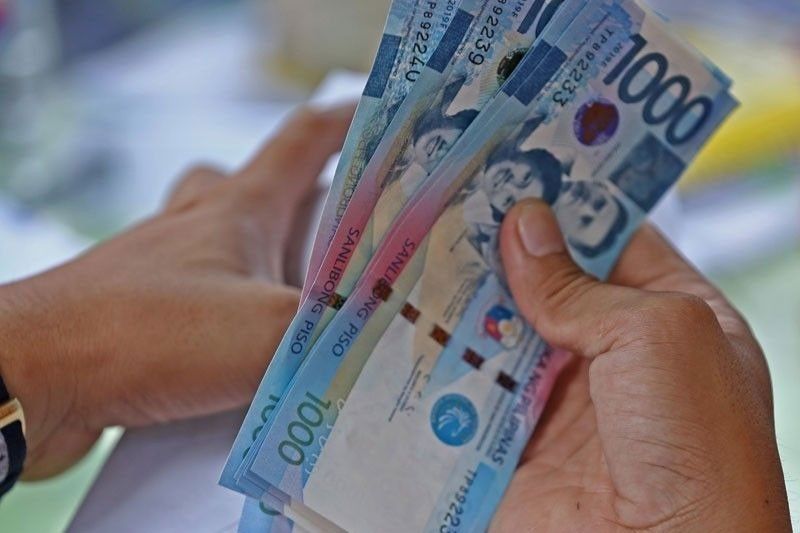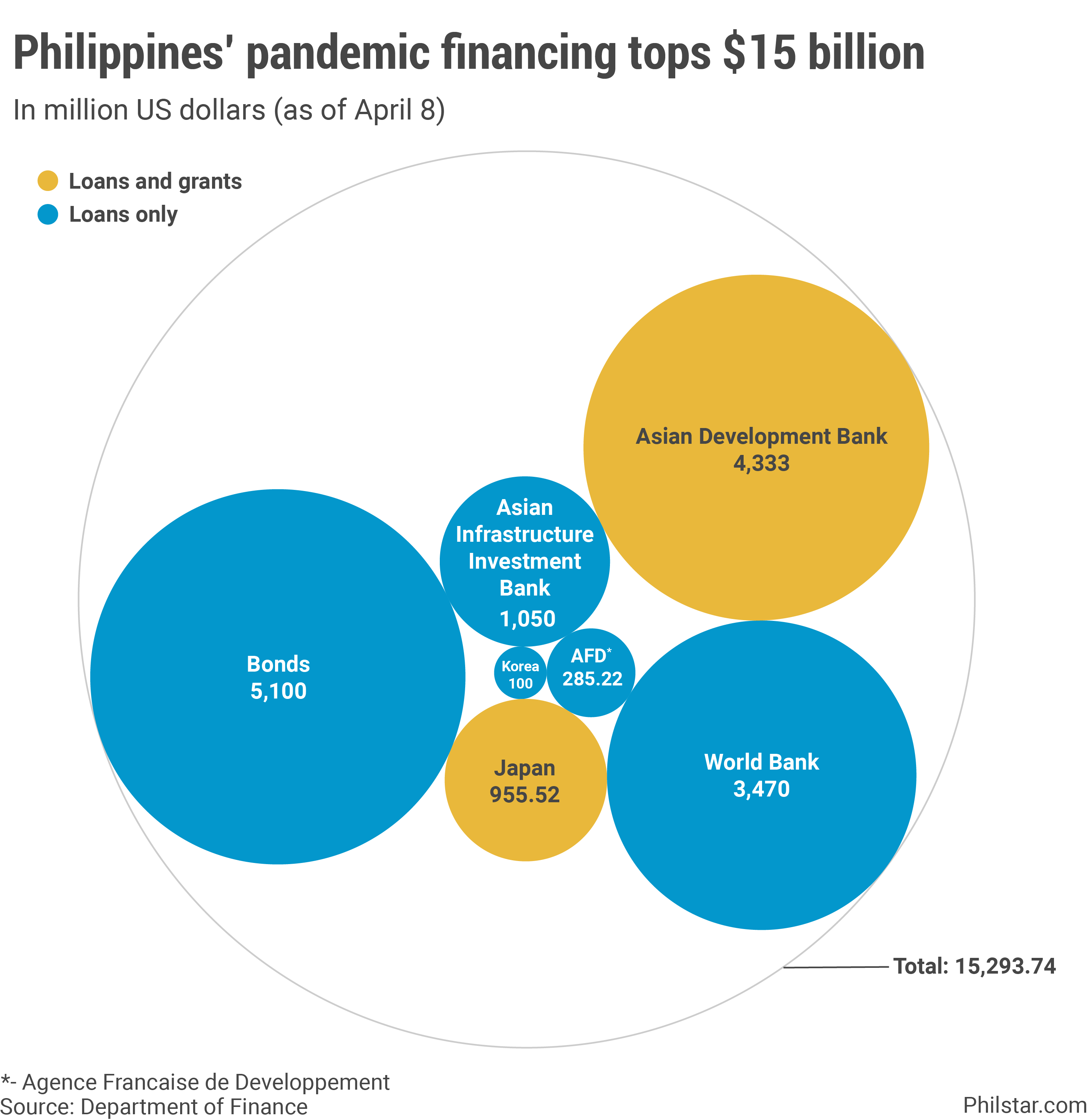Government pandemic debt tops $15 billion as April begins

MANILA, Philippines — The Philippines’ debt pile to finance its pandemic response has continued to balloon as funds to purchase vaccines were started to be earmarked.
As of April 8, the national government has signed up $15.3 billion in financing mostly in foreign loans to finance health programs and projects meant to counter the coronavirus pandemic, data from the finance department showed.
Adding up to the latest from previous month were $700 million in project loans from the Asian Development Bank and Asian Infrastructure Investment Bank, multilateral agencies that committed to lend out money for the Philippines’ vaccine procurement.
Broken down, Manila-based ADB gave $400 million, while China-based AIIB shelled out $300 million. Funds did not exactly changed hands, with the government merely signing up loans from these agencies, which in turn, will pay up vaccine suppliers directly once vaccine deliveries are made.
The entire debt pile includes funding from last year, some of which were understandably already spent. However, what is similar for all of funding listed was that loan contracts had at least been signed, which paves the way for future disbursement according to what has been agreed upon.

The current tally showed the bulk of funding, amounting to $5.1 billion, were still raised from commercial sources, meaning the government selling bonds to foreign investors. This amount is bound to increase with proceeds worth around P24 billion from the sale of Samurai bonds, which had not been settled yet as of latest count, set to add to the liabilities.
The government has been quick to turn to borrowing after tax receipts fell last year in the face of the world’s longest lockdown that crippled businesses and kept consumers at home. While some activity have resumed this year, fresh restrictions in Metro Manila and nearby urban areas have threatened the recovery— and with it, the revenues economic activities bring to state coffers.
After bond proceeds, funds lent out by the ADB came in the next biggest, amounting to $4.3 billion, which included a tiny $8 million in grants that need not be repaid. The World Bank followed suit, with $3.47 billion in loans. AIIB contributed $1.05 billion.
Japan, both as a country and through its developmental arm, Japan International Cooperation Agency, gave $955.52 million in loans and grants. Another developmental aid agency from France, Agence Francaise de Developpement lent $225.22 million.
South Korea, through the Export-Import Bank of Korea, capped lenders with $100 million.
- Latest
- Trending





























